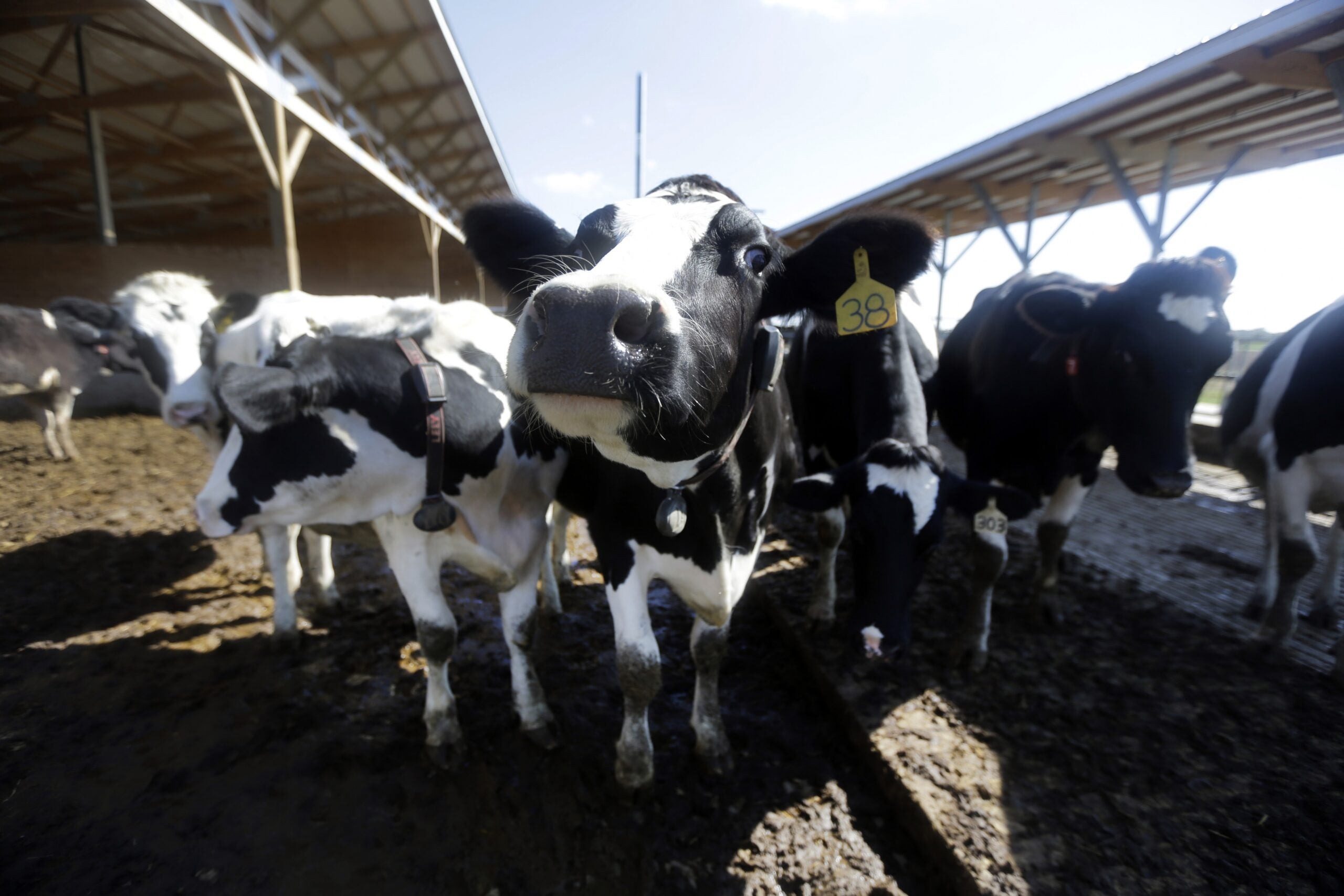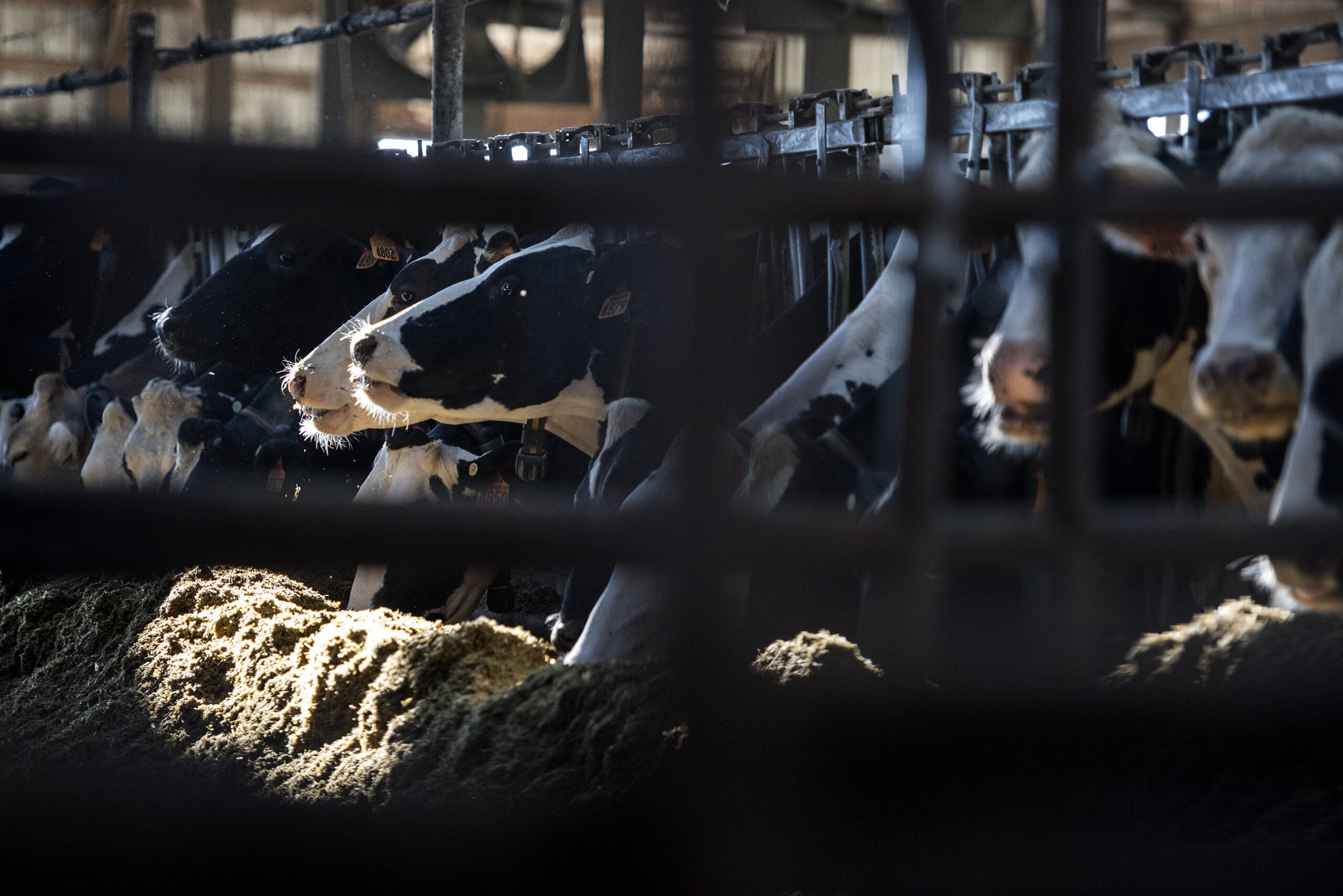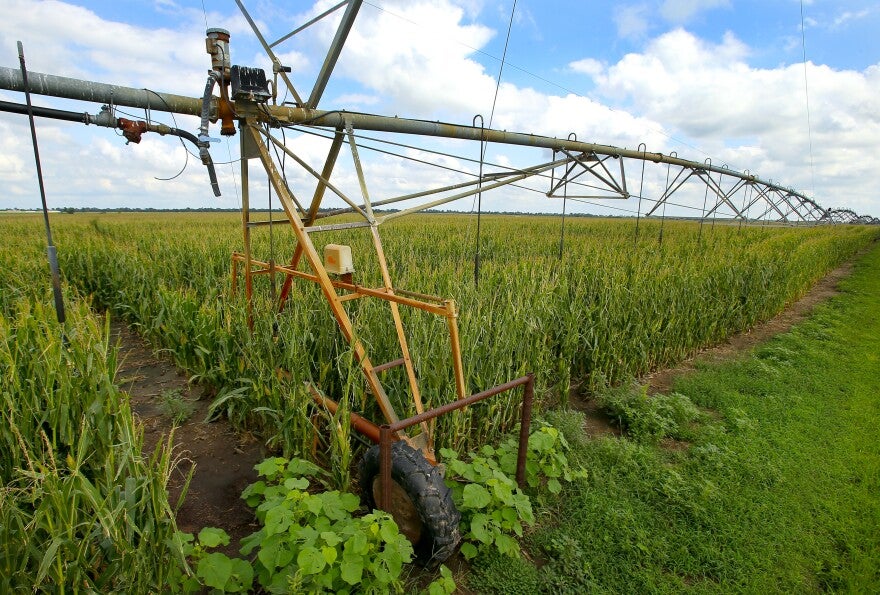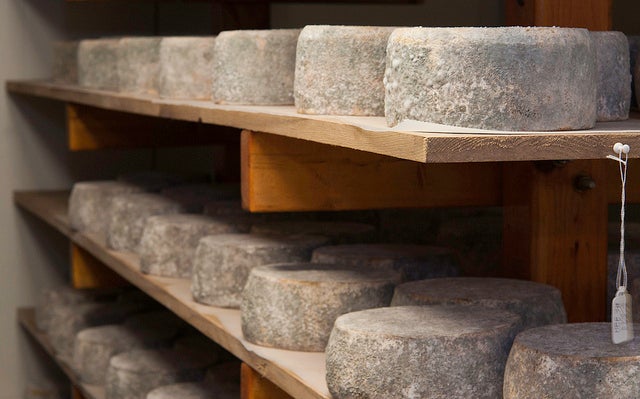New research shows that Wisconsin dairy farmers are picking up an unexpected benefit from time spent in the barn: good gut bacteria from their cows.
Marshfield Clinic Research Institute said the study is one of the largest to look at the health of dairy farm workers from exposure to their cows and manure.
Researchers used nasal swabs and fecal samples to look at farmers’ microbiomes, the collection of bacteria, fungi and viruses that are naturally found in the human body.
News with a little more humanity
WPR’s “Wisconsin Today” newsletter keeps you connected to the state you love without feeling overwhelmed. No paywall. No agenda. No corporate filter.
“These microbes have the ability to produce a million times more molecules that can modulate human health,” said Dr. Sanjay Shukla, director of the institute’s Center for Precision Medicine Research.
Shukla said in the last 15 years, research has shown that the microbiome can affect complex diseases like Parkinson’s, type 2 diabetes and even Alzheimer’s.
The study found the nasal microbiome of central Wisconsin dairy producers had strong similarities to their cows’ noses, and was significantly different from non-farmers in the same ZIP codes. The farmers also had increased levels of beneficial bacteria that can provide a barrier to sinus infections.
“It was not surprising,” Shukla said. “Basically, it’s a coevolution. To some extent, if you work in an environment, you’re going to share that microbiome.”
When comparing gut microbiomes, Shukla said cows had a more diverse mix of microbes than either human groups. The composition of the two human gut microbiomes were similar, but Shukla said farmers had increased levels of two beneficial bacteria: Coprococcus eutactus, which works as a probiotic, and Roseburia faecis, which helps maintain the human gut’s normal functioning.
He said researchers were curious to see if this sharing meant cows were passing along any antibiotic-resistant genes developed from the use of on-farm medications, like antimicrobials to treat bovine mastitis. He said surprisingly, the samples did not show any antibiotic resistance passed onto farmers.
With thousands of samples collected from cows and humans, Shukla said the team’s next step is to look at how the bacteria that are present actually contribute to the overall health of farmers and how diseases affect them.
“For example, we’re planning to look at different cancers in the farmers because the gut microbiome has been linked to colon cancers,” he said.
With close to 2.6 million people working in agriculture in the United States, Shukla said more research is needed to understand both the positive and negative impacts of exposure to livestock.
Wisconsin Public Radio, © Copyright 2026, Board of Regents of the University of Wisconsin System and Wisconsin Educational Communications Board.





